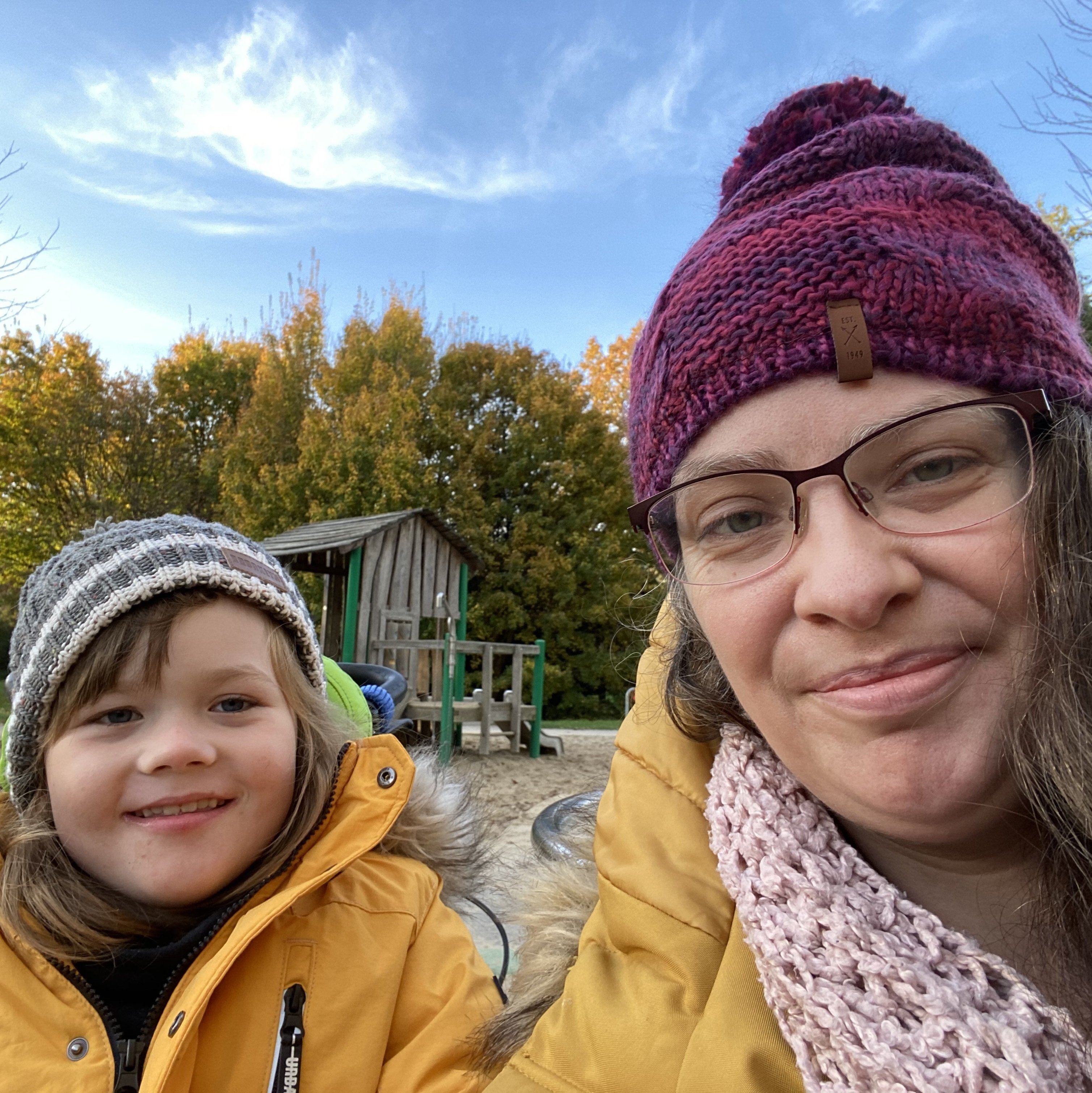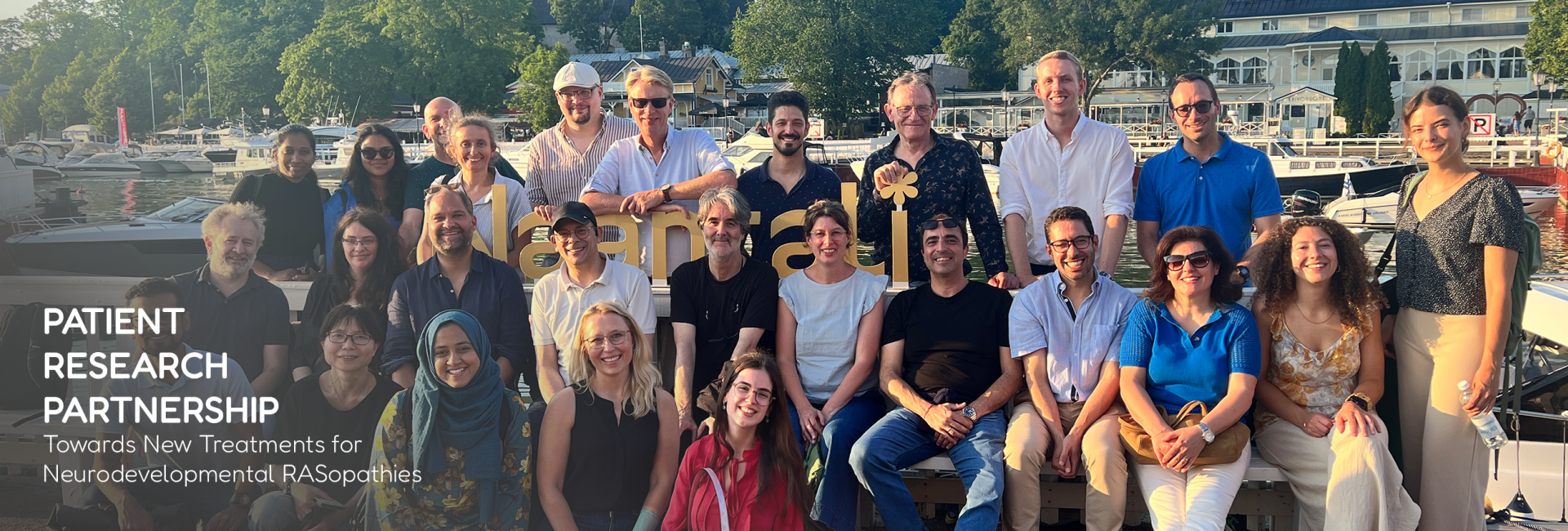👋 Say hi to Verena and Jamie!
My name is Verena Schmeder and I am the president of the German SYNGAP1 patient organisation called Syngap Elternhilfe e. V. My son Jamie is 10 years old and has Syngap1 syndrome. We are living in Krefeld in the North-West of Germany.
📖 The start of the journey...
Looking back, the first obvious symptoms of my son started at 3-6 months with a global developmental delay. After a rocky diagnostic journey, we got his diagnosis at the age of 28 months. For us, it was a relief to finally know the cause for his symptoms. We realized that epilepsy is a part of this syndrome and that it had been undetected for 1,5 years. Having a diagnosis enabled us to start a medical therapy to fight his epilepsy and to look for other affected families.
🏠 The daily life at home
All of the affected kids and adults do have intellectual disability, which shows up as developmental delay first. Nearly all have epilepsy, sometimes with hundreds of seizures per day, which is often drug resistant. Most patients are nonverbal and about 50% have an autism diagnosis but even more struggle with challenging behaviours and sleeping difficulties. For my son it means: He cannot stand independently, cannot walk and needs a wheelchair. He cannot talk or care for himself in an age-appropriate way. Syngap1 syndrome impacts our daily lives every day because it means reading your kids’ special needs while they are unable to express these by themselves. Raising a kid with Syngap1 syndrome requires a lot of resilience and patience. Under the right circumstances they develop at their own pace, however some of their needs will always be similar to those of a toddler.
💭 A syndrome too often misunderstood in society…
In Syngap1 syndrome we see a wide spectrum of severity. Some kids cannot walk or talk, while others can walk and at least have some words. In kids on a lower functioning level their abilities are often underestimated. On the opposite the walking kids are often misunderstood, due to their invisible disabilities. But they are all struggling in some way. The worst misconceptions I’ve ever heard: When a tax office employee said: Oh, Syngap1 those kids are “wrong in their head”, or when schools or group homes claim, that our kids are “doing it by purpose” or label our kids as “being egocentric”. They are none of these! They are kids with a severe disability on multiple levels, but they have potential to thrive when we find the right medication and therapies to unlock it.
🩺 ...presenting challenges with the healthcare system.
Challenges accessing appropriate medical care already start with the diagnostics. Why do some families have to wait one year for an appointment at the geneticists? Why does it take years to get a genetic diagnosis although we do have the technical methods now? Why do our kids just get the minimum of therapies although they would need intensive training? Why do we have to beg, argue and fight for proper medication and assistive equipment, with decision makers who, in many cases and from my experiences, appear to have little knowledge about kids with special needs, about disabilities or about Syngap1 syndrome and what it means to live with it? It is devastating to see that these challenges are part of our families lives in many countries. Personally, we experienced nearly all of that, but I know that there are countries where treatment options are even worse than in Germany.
👥 Community as a source of support and knowledge
As a family living with a rare genetic disease and raising a kid with special needs, it is important to find others who really understand what you are going through. That’s why we founded our patient organization as a patient support group. We are all parents of affected children. As we are spread throughout the country, we mostly connect online. That’s what parents all over the world did and when we found each other, we decided to build Syngap Global Network, which is an international collaboration that combines the strengths of being local, speaking your language and knowing your national systems, while sharing knowledge and experiences across borders and across language barriers. In rare diseases it is important to connect globally. Today we are a strong network of patient organisations supporting patient families, spreading awareness and fostering research.
🍋 "When live gives you lemons, make lemonade… or ask for salt and tequila."
Living with Syngap1 has taught me to be thankful for the little things in life. When live gives you lemons, make lemonade… or ask of salt and tequila. We have learnt to make the best out of our situation. Syngap1 has given us a second family and turned strangers into friends. Helping others to survive what you have already gone through, is a good coping strategy. I have learnt to concentrate on the things that I can change, while accepting the ones I cannot change…(yet)!
🤝 Solutions lie also in society
Everyone speaks about inclusion. Most people think that means “one school for all” but for many kids with Syngap1 syndrome it is already challenging to go to a special education school. Most of them would not be able to attend a regular school with an inclusive concept. Closing special education schools would mean, no school for our kids. Every kid deserves a place where they can learn and be safe and parents should have the choice. In my opinion inclusion must happen in many more parts of our life and not just in schools. There are so many places that lack accessibility like playgrounds or public disability toilets that have no changing places for big kids or adults. In many areas inclusion could be realised quite easy, but it seems like it hasn’t reached people’s minds, especially those of many decision makers.
🌟 Hopes for the future
Personally, I hope that my son will be able to say a few words one day, that I will hear “Mama” more often, that he will be able to communicate his needs and thoughts in some way, that he will learn to walk and that we will get rid of his seizures. For his future I wish that he will be happy and surrounded by people who understand him. For Syngap1 syndrome and our community I hope that there will be early diagnostic options (like newborn screening) and different effective medical treatments available to all families that help our kids to live without epilepsy and to thrive, to have improved learning and memory and to live a happy life without challenging behaviour caused by this neurological chaos in their heads. I want to contribute as much as I can to increase our collective knowledge about this disease, to find news treatments and to develop treatment guidelines to help as many affected families as possible.
✉️ One last message
To parents and caregivers of individuals with special needs, who don’t know the (genetic) cause, my message is: Fight for advanced genetic testing! Everyone deserves a diagnosis. To people teaching and caring for individuals or doctors treating patients with Syngap1 syndrome: Learn about Syngap1 syndrome and the individual needs, there are no “one size fits all” solutions. Don’t ignore the genetic cause with its special features, you might miss something important. Reach out to the national Syngap1 patient organisations, these are the expert hubs for this complex and rare genetic disease. Let’s work together to improve the quality of life for all patients and their families. You want to know more: Visit syngapgloabal.net
👇 Follow Jamie's blog on Facebook
👇 Learn more about Syngap1 on the Syngap Global Network


